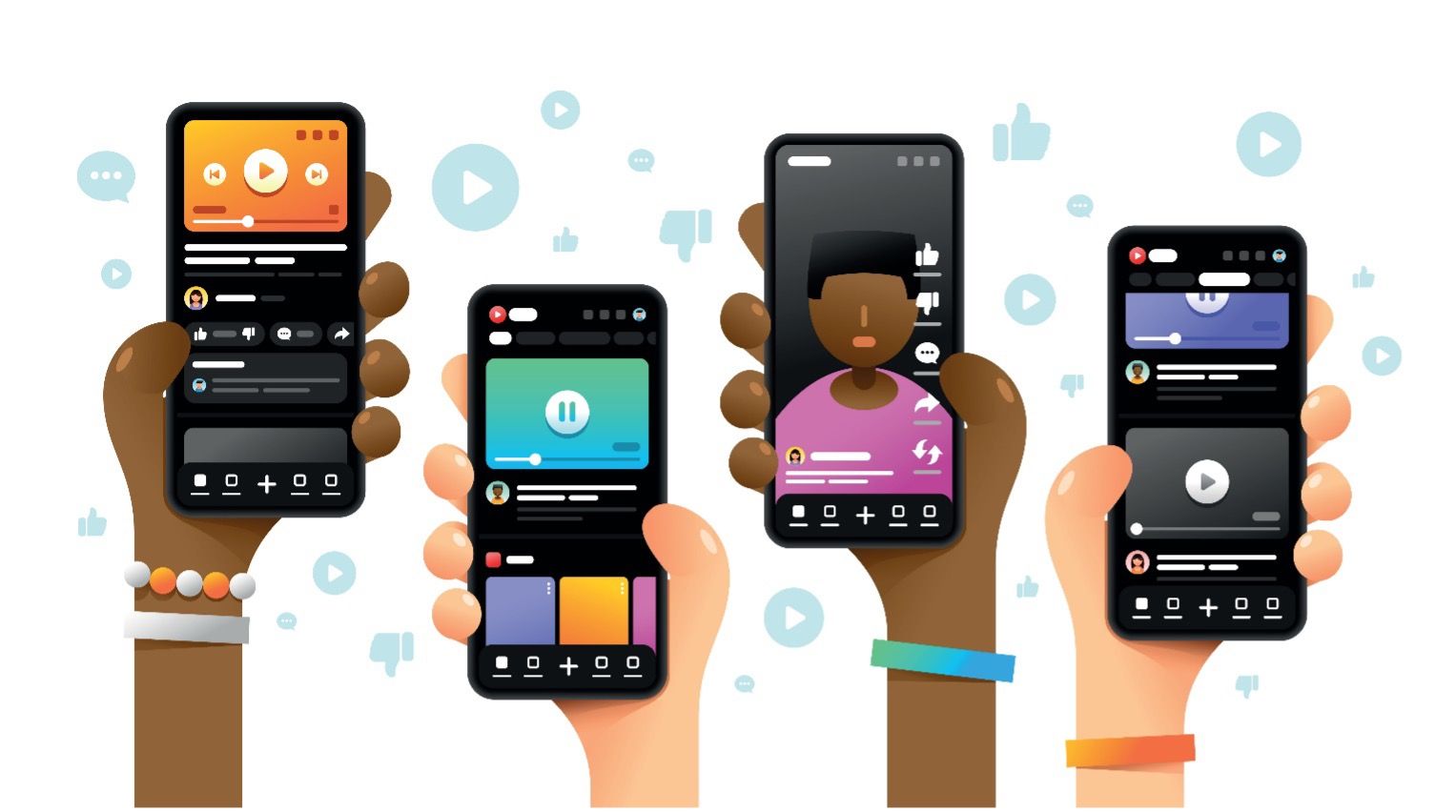
Picture a world where creating custom software solutions isn't just for the tech-savvy but for anyone with a vision to address their organization's needs. In today's rapidly shifting digital arena, businesses are locked in a relentless race to stay ahead and cater to ever-changing customer expectations. At the heart of this transformation is the crafting and deployment of tailor-made software applications. However, the soaring demand for skilled developers often leaves companies struggling to bridge the gap, with many falling behind.
This is where the inspiring story of citizen developers and low-code and no-code platforms unfolds. These cutting-edge tools break down barriers and level the playing field, empowering non-technical professionals to easily design and develop custom applications. Businesses can now confidently navigate the fast-paced digital world by democratizing the software development process.
Bubble-Powered Prenups: Revolutionizing the Prenup Process with HelloPrenup
When millennial couples began adopting prenuptial agreements, family law attorney Julia Rodgers and software developer Sarabeth Jaffe recognized an opportunity to streamline the complicated and expensive process. Their brainchild, HelloPrenup, delivers bespoke prenups at a mere fraction of the cost of conventional lawyers.
The secret to HelloPrenup's success lies in their choice of platform - Bubble, a no-code web app builder. Despite her extensive software engineering experience, Sarabeth found Bubble to be the perfect fit for their project, enabling her to quickly build large portions of the site without writing any code. This allowed her to focus on developing custom features unique to HelloPrenup. Additionally, Bubble's robust security infrastructure gave the co-founders peace of mind, knowing their users' sensitive financial information was well protected.
HelloPrenup was built and launched in just three months, generating revenue within its first month. This impressive feat caught the attention of ABC's hit TV show, Shark Tank, where Julia and Sarabeth struck a partnership deal with sharks Kevin O'Leary and Nirav Tolia. Read more about their success here: HelloPrenup simplifies custom marriage prenups using Bubble.
In this guide, we'll explore the rise of citizen developers, the advantages and impacts of low-code and no-code platforms, and how you can leverage these powerful tools to propel your organization forward.
A Blast from the Past: Citizen Developers
Thanks to the meteoric rise of low-code and no-code platforms, James Martin's pioneering vision of citizen developers, first introduced in his 1982 book "Application Development Without Programmers," has become an exhilarating reality. Nowadays, non-technical professionals can actively collaborate to craft tailor-made software solutions that meet their specific business needs without solely relying on specialized IT departments.
The Low-Code and No-Code Revolution Takes Off
Low-code and no-code platforms have been skyrocketing in popularity as businesses grapple with an ever-widening skills gap in the tech industry. The Bureau of Labor Statistics anticipates that the economy will create a staggering 682,800 computer science jobs between 2021 and 2031, fueled by the relentless expansion of cloud computing, information security, and big data in the corporate sphere (BLS). As a result, businesses are enthusiastically turning to low-code and no-code solutions to address their software development needs.
Low-Code vs. No-Code: Understanding the Difference
Though often used synonymously, low-code and no-code platforms are distinct from one another. Low-code platforms necessitate elementary coding knowledge, whereas no-code platforms depend solely on a visual user interface. Both tools use code but hide most of it from the end-user, simplifying the development process and enabling non-technical professionals to create applications without extensive coding experience.
The Impact of Citizen Developers on Businesses

Citizen developers are reshaping how organizations approach software development by breaking down barriers and fostering a culture of innovation. By empowering non-technical professionals to create custom applications, businesses can bridge the gap between IT and other teams, streamline processes, and drive innovation. Key statistics illustrating the impact of citizen developers include:
• By 2025, a staggering 70% of new applications will be built using low-code or no-code platforms. (DesignModo).
• Gartner predicts that by 2023, large enterprises will house 4x more citizen developers than professional developers. (QuandaryCG)
• An IDC report revealed that low-code accelerated the software development lifecycle by 62% for new applications and 72% for new features, generated an additional $19.8 million in annual revenue, and boosted productivity by a whopping 123%. (Appian)
Embracing the Benefits of Low-Code and No-Code Platforms
Low-code and no-code platforms shower businesses with a treasure trove of benefits, including:
1. Wallet-friendly Solutions: One of the most enticing advantages of low-code platforms is their cost-effectiveness. With usage-based subscription pricing, businesses only pay for the resources they genuinely need. This approach empowers organizations to allocate their financial resources more efficiently, optimizing budgets and yielding impressive results.
2. Boundless Customization and Scalability: Low-code and no-code platforms enable businesses to swiftly tailor and scale their software solutions to adapt to their evolving needs. This flexibility ensures that companies can effortlessly modify their applications as they grow, keeping their software relevant and potent in today's fast-paced market.
3. Security: In our digitally-driven era, protecting sensitive information has become an utmost priority. Low-code and no-code platforms deliver formidable, enterprise-grade, cloud-based security measures that assist businesses in maintaining compliance with industry regulations and shielding their precious data from looming dangers.
4. Blazing-fast Development: Traditional software development can be painstakingly sluggish. However, the streamlined development process provided by low-code and no-code platforms dramatically reduces the time required to bring new applications to market. This accelerated development cycle allows businesses to quickly address market demands, seize opportunities, and stay ahead of the competition.
5. Minimal Risk, Astronomical Rewards: Low-code and no-code platforms allow businesses to experiment with new software solutions without a substantial upfront investment. This low-risk approach enables rapid iteration and adaptation, ultimately leading to higher returns on investment. Organizations can harness these platforms to stay agile and maintain their competitive edge in the bustling business world by cultivating a culture of innovation and continuous improvement.
11 Low-Code and No-Code Platforms You Can Use Today
Selecting the ideal low-code or no-code platform is crucial to your success. Here are 11 platforms that cater to an extensive range of business needs:
Airtable is an innovative, low-code platform designed to help you effortlessly craft customizable spreadsheets and databases that streamline project management and collaboration. Its attractive and user-friendly interface empowers teams to shoot for the moon and accomplish their goals easily. Dive in for free and discover the remarkable benefits yourself.
Carrd is a user-friendly, drag-and-drop landing page builder that allows you to design stunning, responsive landing pages without any coding or design skills. Ideal for individuals and small businesses looking to create an online presence quickly and easily.
Zapier is a powerful workflow automation tool that integrates with over 5,000 apps, enabling users to optimize their work processes and concentrate on high-impact tasks. Automate routine tasks and boost productivity with Zapier's versatile platform.
Bubble provides an innovative, no-code solution for designing and building web apps, including SaaS platforms, marketplaces, and CRMs. Their platform simplifies app development and hosting, enabling anyone to bring their software ideas to life without writing a single line of code.
Mailchimp is a comprehensive marketing platform that helps small businesses grow and achieve their goals. Design and send visually appealing HTML emails without coding knowledge, and use their suite of tools to elevate your marketing campaigns.
Jotform is an online form builder and creator that allows users to design custom forms and surveys effortlessly. With a user-friendly drag-and-drop interface, you can start collecting registrations, applications, orders, and payments in no time.
Make is an innovative and versatile platform that empowers you to create and automate workflows, tasks, apps, and systems, optimizing your work processes and boosting efficiency. Ignite your imagination and customize your work environment with Make's trailblazing features.
Mixpanel is an authoritative analytics tool that unveils the inner workings of your business's performance, helping you identify areas ripe for improvement. With its intuitive event analytics, Mixpanel equips you to make data-driven decisions and refine your web and mobile apps.
Otter.ai is a cutting-edge transcription service that harnesses the power of AI to transcribe speech into text in real-time. Its extraordinary capabilities include automatic meeting notes, recorded audio, automated slide capture, and concise meeting summaries, making it an indispensable tool for professionals and businesses of all shapes and sizes.
UserGuiding is a product walkthrough and onboarding software enabling businesses to create interactive guides for new users and clients. With its affordable pricing and ease of use, UserGuiding has become the go-to choice for over 7,000 active companies.
Imagica offers a groundbreaking no-code platform for building AI apps in just 5 minutes. Its multimodal capabilities allow users to incorporate text, images, video, and 3D models, making it an exceptional tool for developing state-of-the-art AI applications.
There are over 500+ low-code/no-code platforms on the market, with the rate of proliferation expanding with the help of tools like OpenAI's ChatGPT, so conduct thorough research to find the best fit for your organization. Find a list of 500+ No Code Tools here.
Taking the Plunge: Integrating Low-Code and No-Code Platforms into Your Business

To successfully integrate low-code and no-code platforms into your organization, follow these steps:
1. Identify Your Needs: First and foremost, you need to pinpoint your business's specific challenges and determine how low-code or no-code solutions can address them. Consider your team's unique requirements and which platform features would be most beneficial.
2. Research and Compare: Explore different platforms and compare their features, pricing, and user reviews. This will help you make an informed decision and choose the platform that perfectly aligns with your needs.
3. Test-drive the Platforms: Many low-code and no-code platforms offer free trials or demo versions. Take advantage of these opportunities to test the platforms and get a feel for their functionality and ease of use.
4. Craft and Execute a Master Plan: Once you've selected the perfect platform, devise a comprehensive plan for its implementation within your organization. This may encompass setting ambitious goals, training employees, and establishing a realistic timeline for deployment.
5. Evolve and Thrive: As your team becomes more adept at using the platform, continuously iterate and refine your processes. This will help you extract the maximum value from your low-code or no-code solution, ensuring your organization remains nimble, forward-thinking, and innovative.
The unstoppable ascent of citizen developers, propelled by low-code and no-code platforms, is reshaping the software development landscape. These groundbreaking tools democratize the development process, empowering non-technical professionals to take control of their organization's digital needs, and cultivating a culture of innovation, problem-solving, and collaboration.
By embracing low-code and no-code technologies, businesses can harness the power of citizen developers, streamline processes, and drive innovation, ultimately staying ahead in today's rapidly evolving digital landscape.
While low-code and no-code platforms can undeniably help you achieve extraordinary results, there's still no replacement for mastering the art of writing code and constructing software from the ground up. As a software engineer, you'll possess the knowledge and abilities to devise comprehensive solutions that go beyond the scope of low-code and no-code platforms.
At Thinkful, our beginner-friendly practice exercises, led by our skilled instructors, will take you on a captivating journey through the ever-changing world of software engineering. Our dedicated and experienced professionals will keep you informed on the latest trends and technologies, positioning you at the cutting edge of this dynamic field.
And there's even more in store for you! As a valued Thinkful student, you'll benefit from customized, one-on-one mentorship by accomplished software engineers who are wholeheartedly committed to your success. Our mentors, boasting an average of 10 years of experience, strive to help you unleash your true potential and become a software engineering virtuoso.
Don't limit yourself - seize the boundless opportunities that software engineering offers and become a part of the Thinkful family today. Set out on your path to software engineering mastery, and together, let's push the boundaries of what's achievable. Sign up today!

